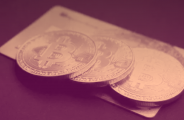
Bitcoins can be traced back to problems with damage, but current technology has led to practical ways of tracking stolen bitcoins. To track the person who received the bitcoin, the address owner must be aware of it.
However, governments do not want bitcoin owners to be unknown and they are trying to regulate bitcoin in a way that can be monitored. People can be found if they shop in a webshop and pay with bitcoin and enter their shipping address ( because they have to get the item they paid for ). It’s really nothing new since people have been doing blockchain analysis and bitcoin tracking since bitcoin was used to exchange stuff on the internet.
Bitcoin is often presented as an untraceable payment method that facilitates illegal activities by allowing criminals to make and receive payments without being monitored.
In fact, there are many ways in which the identity of a person can be exposed in bitcoin transactions.
Users who rely on a bitcoin exchange ( e. g. Bitfinex, Binance or Kraken ) to exchange money for bitcoin must disclose their personal data to such an account.
When you transfer the coins to your Ledger Nanos, simply send them to a Bitcoin address, as you would with any other portfolio. Cryptocurrencies such as Bitcoin are a great way to send and receive money without the need for a centralized third party. However, governments are beginning to introduce new rules that could force any anonymous Bitcoin exchange to verify the identity of a new user before allowing them to purchase Bitcoin using fiat currency.
Bitcoin: An anonymous currency?
Bitcoin, the Internet currency loved by computer scientists, libertarians and criminals, is no longer vulnerable. But Bitcoin ‘anonymity is also a powerful tool for criminal financing: virtual money can keep shady transactions secret.
Academic researchers have contributed to the development of Bitcoin encryption and software, many of them are helping to enforce crime. Researchers have quietly collected all the data from the Silk Road – from images and texts that describe medicines to Bitcoin transactions that appear in the blockchain when the transactions are closed.
Other criminals could be content to be mistaken – as long as you use Bitcoin carefully, your identity has been protected behind the cryptographic wall.
Once you have purchased a bitcoin through your bank account or credit card, you can send it to your wallet.’
Create multiple addresses so that bitcoin can be randomly divided between them, making blockchain analysis more difficult and anonymous. Now you have your bitcoin clean, you don’t want to waste all the hard work of using it in a trackable transaction. As such, if you can pay with bitcoin and rely on the trader not to keep any PII records, the purchase may be anonymous. If you prefer to spend your bitcoin on other cryptocurrencies or cash, the easiest thing to do would be to go to the exchange. Portfolios, currency exchanges, mixing companies, and P2P sites have all been used to cheat bitcoin users. Keep in mind that bitcoin is still the most widely accepted cryptocurrency.
Bitcoin ATMs allow you to buy coins anonymously because some of them require you to scan your identity before use. When you store Bitcoin in a private portfolio, you never need to provide personal information.
You can easily transfer money into and out of your anonymous Bitcoin portfolio without having to provide identification. However, since Bitcoin works on a decentralized network, you have full control over your funds.
Bitcoin is a form of digital currency that uses cryptography to create and verify currency transactions.
Bitcoin addresses do not require the identity or actual address of the person concerned




























